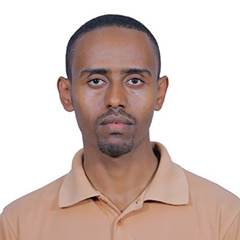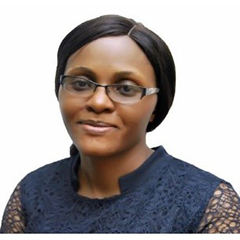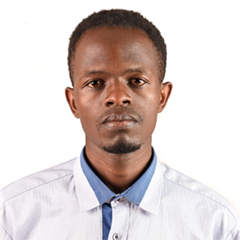WIPO-supported Global Health Innovation Fellows Program Welcomes its First Cohort
March 28, 2024
In October 2023, WIPO unveiled its groundbreaking Global Health Innovation Fellowship in partnership with the Indian Department of Biotechnology (DBT)’s Biodesign Program and the Indian Institutes of Technology (IIT) in Bombay and Delhi. Spearheaded by DBT and operational across six centers in India, including IIT Delhi and IIT Bombay, the Biodesign Program involves training aspiring innovators to develop medical technologies with lower-resource settings in mind, creating a meaningful impact on global health.
WIPO is sponsoring four African Fellows in the DBT Biodesign Program, where they will be immersed in a transformative two-year journey aimed at equipping them with the skills to develop innovative medical technologies specifically focused on resource-constrained settings. Additionally, WIPO is set to roll out tailored, IP-focused training materials across all six centers of the DBT Biodesign Program in India to build capacity on how to leverage intellectual property (IP) to promote innovation and equitable access to medical technologies addressing global health challenges.
The inaugural cohort of the Fellows commenced their residency at IIT Delhi and IIT Bombay in early 2024. This Fellowship ignites a dynamic exchange of knowledge and innovation between Africa and Asia in pursuit of global health innovation and access to medical technologies.
Meet the first cohort of Global Health Innovation Fellows

As a medical doctor with over two years of clinical practice, my passion lies in pioneering medical innovations for resource-constrained areas. Through the Fellowship, my goal is to address the rise of noncommunicable diseases (NCDs) by creating affordable, reliable point-of-care diagnostic devices. In particular, the noninvasive Arterial Blood Gas (ABG) analyzer which provides measurements of oxygen, carbon dioxide and other parameters in arterial blood, aiding in the diagnosis and management of conditions such as Chronic Obstructive Pulmonary Disease (COPD) and diabetes. As Co-founder and CEO of Acubed, a health tech startup tackling challenges in diagnostic test availability in Ethiopia and Rwanda, I recognize the vital role of IP rights. Safeguarding IP rights is essential to nurturing innovative solutions and broadening their reach to tackle pressing global health issues.”
Asnake Amelo, Ethiopia (IIT Bombay)

Observing firsthand the healthcare disparities between well-equipped hospitals and those with limited resources as a healthcare researcher and doctor motivated me to seek the Fellowship. I aim to devise solutions for rural areas, especially for maternal and newborn care. The Fellowship would advance my research and development skills in medical technologies. Furthermore, gaining knowledge on the use of WIPO’s IP services and resources would assist in protecting my innovations, attracting investors and facilitating technology licensing. My ultimate mission is to improve public health by harnessing innovation and IP, beginning in Uganda, extending across Africa and resonating globally.
Pius Atwau, Uganda (IIT Delhi)

With expertise in biomedical innovation, I'm dedicated to developing collaborative solutions, such as point-of-care tools, for diagnosing infectious diseases and NCDs. This Fellowship offers the chance to enhance my knowledge in IP to ensure that innovative solutions can be developed, protected and disseminated, thereby advancing global health. I also applied to the Fellowship because it provides innovators, including women, opportunities to address global health challenges using technology. The skills that I would gain would help me continue to mentor girls to pursue Science, Technology, Engineering, Arts, and Mathematics (STEAM) careers through my annual Girls-in-STEAM bootcamp in Nigeria.
Chinenyenwas Dorothy Ohia,Nigeria (IIT Bombay)

As a mechanical engineer, I'm passionate about innovating to solve critical issues. Witnessing the profound impact of dysmenorrhea (painful menstrual periods), on women's well-being inspired my focus on FemTech, which is one of the focus areas of the Fellowship. This opportunity would enhance my understanding of the significant role of IP rights in fostering collaboration and knowledge sharing to ensure access to medical technologies. Furthermore, by acquiring research and development expertise, alongside technology transfer skills, I aim to empower underprivileged communities, driving meaningful change in global health and socioeconomic disparities.
Peter Opinde, Kenya (IIT Delhi)
Supporting our Global Health Innovation Fellows to Advance the Health Innovation Landscape
WIPO is fully dedicated to supporting the Fellows learn and apply its IP services, knowledge and data in a manner that benefits individuals, Small and Medium-sized Enterprises (SMEs) and businesses in the MedTech sector, helping them protect their ideas and commercialize their inventions. Furthermore, an understanding of IP can open doors to career opportunities in global health, such as advocating for IP policies that consider the unique challenges and needs of the MedTech industry in Low and Middle-Income Countries.
WIPO, DBT, IIT Delhi, and IIT Bombay are confident that these Fellows will return home armed with invaluable expertise, ready to amplify their technologies and tailor their insights to the African landscape, thus contributing to the advancement of healthcare in the region. By harnessing the knowledge gained from the Biodesign program, it is our hope that the Fellows will cultivate inclusive and innovative ecosystems within their home countries, demonstrating how IP can serve as a powerful tool in addressing global health challenges head-on.